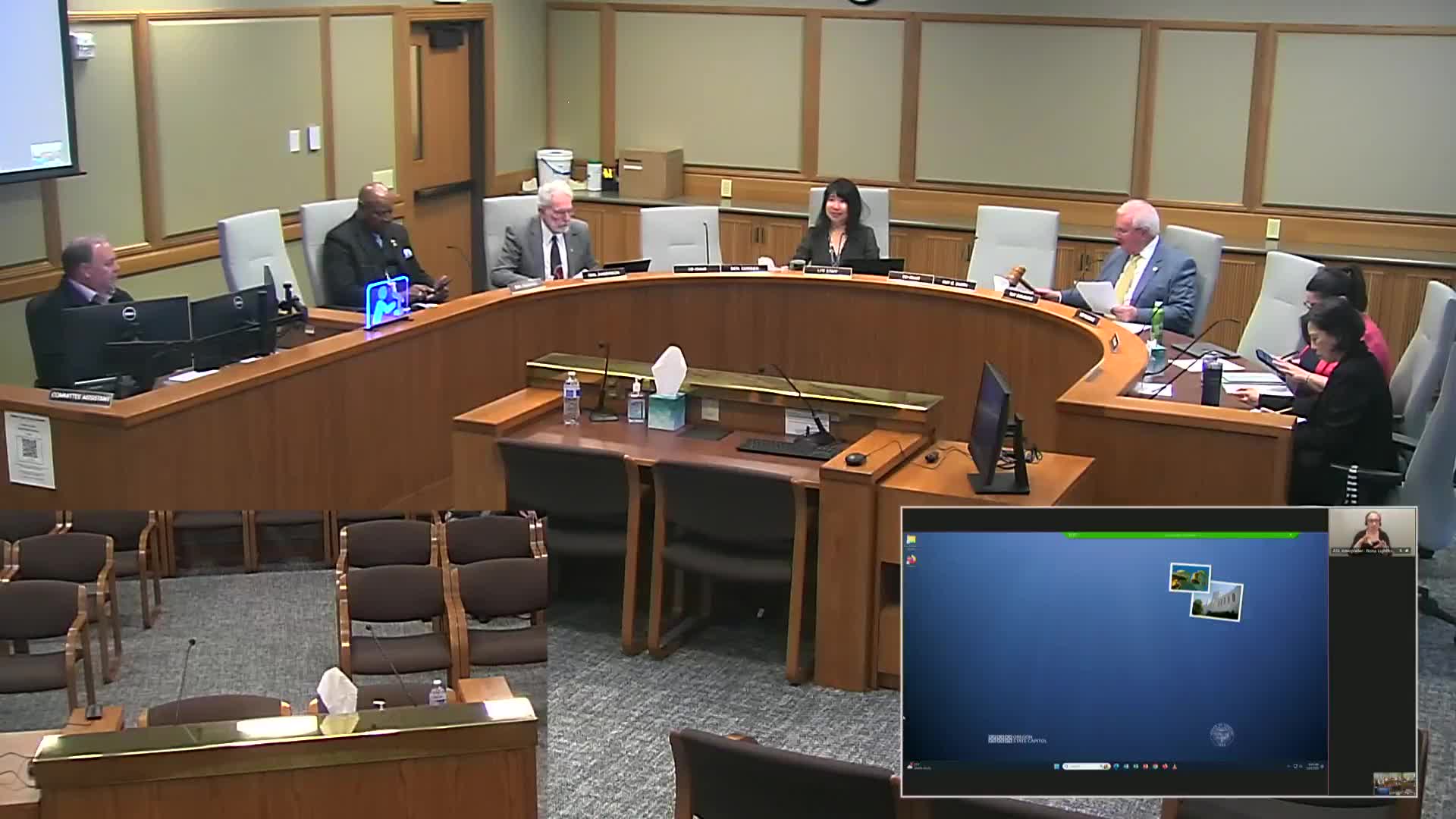Oregon's AI Task Force presents comprehensive action plan for ethical technology use
April 24, 2025 | General Government, Ways and Means, Joint, Committees, Legislative, Oregon
This article was created by AI summarizing key points discussed. AI makes mistakes, so for full details and context, please refer to the video of the full meeting. Please report any errors so we can fix them. Report an error »

The Joint Committee on Ways and Means Subcommittee on General Government convened on April 24, 2025, to discuss the implications of artificial intelligence (AI) and cybersecurity in Oregon. The meeting featured Terrence Woods, the state chief information officer, who presented an overview of the state's action plan regarding AI.
Woods began by emphasizing the importance of understanding AI as a tool that mimics human behavior, while also acknowledging the potential risks associated with its use. He highlighted the necessity of clean data for effective AI functioning, stressing the importance of data privacy and minimizing unnecessary data access.
The discussion revealed that 25 states, including Oregon, have introduced AI-related legislation, with 15 states forming task forces to explore AI's integration into government operations. Woods noted that Oregon's task force spent a year developing a comprehensive action plan, which includes recommendations for ethical AI use, workforce training, and public trust.
A significant concern raised during the meeting was cybersecurity. Woods expressed that the ability of AI to operate continuously poses unique challenges, particularly regarding the protection of sensitive information. He identified cybersecurity and ethical use of AI as his primary concerns.
The committee also discussed the need for human oversight in AI governance to prevent potential harm. Woods explained that while AI can enhance efficiency, it is crucial to maintain human involvement to ensure ethical standards are upheld.
In response to questions about the potential impact of AI on the workforce, Woods clarified that the intention is not to replace jobs but to enhance the capabilities of existing employees. He emphasized the importance of training and education to prepare the workforce for AI integration.
The meeting concluded with a focus on the next steps for implementing the action plan, including establishing a governance framework and addressing privacy concerns. Woods reiterated the need for collaboration with other states to share best practices and avoid reinventing the wheel in AI policy development.
Overall, the meeting underscored Oregon's commitment to fostering a responsible AI ecosystem that prioritizes efficiency, accountability, and public trust while addressing the ethical implications of this rapidly evolving technology.
Woods began by emphasizing the importance of understanding AI as a tool that mimics human behavior, while also acknowledging the potential risks associated with its use. He highlighted the necessity of clean data for effective AI functioning, stressing the importance of data privacy and minimizing unnecessary data access.
The discussion revealed that 25 states, including Oregon, have introduced AI-related legislation, with 15 states forming task forces to explore AI's integration into government operations. Woods noted that Oregon's task force spent a year developing a comprehensive action plan, which includes recommendations for ethical AI use, workforce training, and public trust.
A significant concern raised during the meeting was cybersecurity. Woods expressed that the ability of AI to operate continuously poses unique challenges, particularly regarding the protection of sensitive information. He identified cybersecurity and ethical use of AI as his primary concerns.
The committee also discussed the need for human oversight in AI governance to prevent potential harm. Woods explained that while AI can enhance efficiency, it is crucial to maintain human involvement to ensure ethical standards are upheld.
In response to questions about the potential impact of AI on the workforce, Woods clarified that the intention is not to replace jobs but to enhance the capabilities of existing employees. He emphasized the importance of training and education to prepare the workforce for AI integration.
The meeting concluded with a focus on the next steps for implementing the action plan, including establishing a governance framework and addressing privacy concerns. Woods reiterated the need for collaboration with other states to share best practices and avoid reinventing the wheel in AI policy development.
Overall, the meeting underscored Oregon's commitment to fostering a responsible AI ecosystem that prioritizes efficiency, accountability, and public trust while addressing the ethical implications of this rapidly evolving technology.
View full meeting
This article is based on a recent meeting—watch the full video and explore the complete transcript for deeper insights into the discussion.
View full meeting
